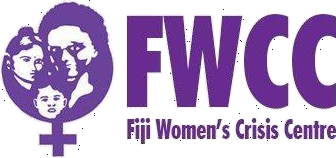Shamima Ali, the Coordinator of the Fiji Women’s Crisis Centre and a former human rights commissioner, has called on FHRADC to make a public statement on the recently released images of tortured suspects taken in 2009.
“The Fiji Human Rights and Anti-Discrimination Commission must make a stand on the issue. Whether the photos were taken in 2009 or 2016, it shows the security forces abusing their powers and violating the human rights of suspects who are already disempowered,” Shamima Ali said.
Ms Ali commended the Police Commissioner Brigadier-General Sitiveni Qiliho and military Chief of Staff Colonel Litea Seruiratu for their assurances the actions of the officers in the photographs would be investigated despite taking place seven years ago.
“It is hoped that something concrete comes out of these promised investigations and that it is not swept under the carpet like other past allegations of brutality.”
The photographs show the suspects bloodied and apparently covered in ash. Another photo shows two men lying face down on the ground with their arms trussed behind their backs and roped to their legs. Two of the men in the photographs have confirmed they were tortured and scalded with hot water in 2009.
“A clear separation of powers and duties is required between the military and the police,” Ms Ali said.
“The two forces have different roles and responsibilities and while the police force has not had a perfect record in the area of detention of suspects, they are the ones empowered by law to deal with civilians allegedly breaking the law – not soldiers.
“In the most recent operation in the highlands to clear marijuana farms, armed officers from both the military and the police force conducted raids. With the arrests and seizures they carried out, one hopes the suspects were not subjected to similar degrading treatment and torture,” Ms Ali said.
Ali said another issue of concern were statements attributed to the Fiji Police Force’s chief of intelligence and investigations Assistant Commissioner of Police, Luke Navela that homes of alleged marijuana cultivators would be destroyed and their household belongings seized because they were supposedly obtained through the proceeds of crime.
“If such a policy were to be implemented, it would mean collective punishment for the women, children and elderly people who also live in the homes owned by alleged drug cultivators,” Ms Ali said.
ACP Navela has since clarified the comments attributed to him and we agree with him that the rule of law should be upheld and the destruction of homes and seizure of property must be carried out only when proven and properly authorised through a court of law, Ms Ali added.
